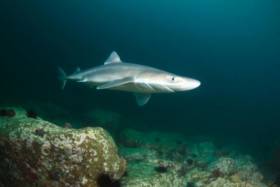Displaying items by tag: JericoNEXT
Galway Meeting Highlights Importance Of Ocean Observation In Europe
#MarineScience - More than 70 leading marine scientists from across Europe met in Galway recently to discuss open access to research on ocean observation.
The Marine Institute in Oranmore hosted the second general assembly of the EU-funded Jerico-NEXT Project, which aims to build on the ongoing co-operation of coastal observatories in Europe — such as SmartBay in Galway — for wider application by the research community and society alike.
A fundamental tenet of the project is that coastal areas are the “most productive and dynamic environment” in the world’s oceans, according to the institute, with significant potential for renewable energy in particular.
“The Marine Institute has a longstanding commitment to the collection, processing and analysis of high quality coastal marine observations,” said the institute’s Paul Gaughan.
“In Ireland we are utilising the SmartBay coastal observatory, located 5km off Spiddal in Galway Bay, as a key component in this trans-European collaboration effort.
“From this we are able to deliver high quality information about sea conditions, subsea video and audio data in real-time to scientists around Europe to access and analyse.”
Data from the SmartBay site are freely available online.
The Marine Institute also recently hosted a delegation of officials from Kenya as part of the Memorandum of Understanding signed last year with the Kenyan Marine Fisheries Research Institute (KMFRI).
The official visit focused on developing an action plan around seven priority areas outlined in the MoU, which include plans for marine fisheries management, hydro-acoustics and assessment of pelagic fisheries resources.
Other priorities are spatial analysis and mapping of vessel monitoring system (VMS) data, integration of VMS and logbook data for fisheries management, and a data management strategy.
Opportunities for exchange, study visits and developing joint PhD and post-doctoral research projects were also a focus of discussions.





























































